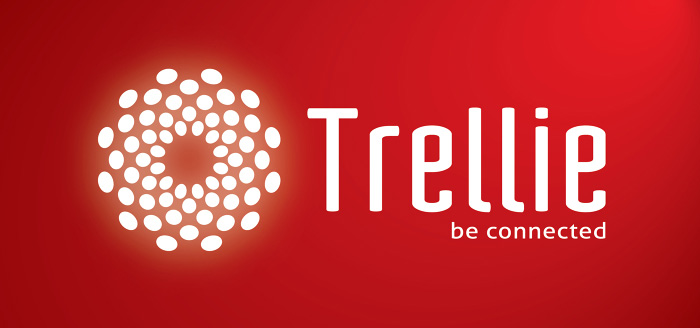 That irritating spinning color wheel. An obstinate error message. A mocking frozen screen. Nothing is quite as frustrating as feeling like you can’t make your computer do what you want. When people experience technical issues, they want to talk to someone about it — fast. That’s why it’s so important to emphasize the “service” in your software as a service (SaaS) company. Sure, it’s easy to get caught up in the software side of things, but a great product will never be successful without solid customer support. Here’s how to keep your product competitive and gain loyal customers for life: Let them know support is available. Let’s face it: some customers will encounter issues when using your product, whether they are bugs or user experience issues. Building a perfect product is, dare I say, impossible — but exceptional service helps overcome any imperfections. Put a phone number on your plans page (using a service like Grasshopper) and see if your conversion rate increases. Customers find it comforting to know someone is there to help if a problem if it arises, and you can always take the number down if the call volume gets too high. Find a support tool. Make it easy for customers to reach out to you when and where they need you. For example, we use Zendesk to manage our support queue. You can place their widget on any page of your website. And, once you hear about an issue, find a way to improve your product so that future customers don’t encounter the same problem. User guides and videos don’t work. I’m a proponent of microcopy or text that instructs the user on how to use a specific feature in context of the actual usage. Be empathetic — regardless of the situation. Sites like SEOMoz and 37signals pride themselves on providing real and transparent support, and for good reason: exceptional service keeps people coming back. For instance, I was recently using Intercom.io, a tool to manage customer relationships, and I ran into an issue. I sent a quick message to their support team. In their response, the team was apologetic and friendly about the issue (which turned out to be my fault!). I found Intercom’s support experience delightful, and that’s why I keep using their service. But had I not been able to easily contact them, I would have likely grown frustrated with their product. Ask customers what they think. Many companies, especially startups, hesitate to offer support because it’s not easily scalable. As your customer base grows, the number of support requests grow, and you need more resources to handle support. However, customer support tickets are one of the best sources of feedback for your company. They bring bugs and user experience issues to your attention that you otherwise wouldn’t notice. And if you have the mechanism in place to act on that feedback, you can continue to improve your product, lessening the number of support requests in the future. As a test prep company, we often receive support requests from students who didn’t understand our explanation to a test question. After responding to the student, we improve our explanation in the product so other students won’t need to ask the same question. Rinse and repeat. Just as great service can make up for many product issues, poor service can cause you to lose customers even if you have a great product. Customers want to know that they can rely on you to help them out when they’re in need. And the issue isn’t just offering support on its own. A culture of good support means you talk with your customers and incorporate their feedback as you continue to build out your product and outperform the competition. No matter how great your software product is, people won’t use it without adequate support. Let your customers know help is available, stand by your commitment and, by all means, help them get rid of those annoying error messages. Once you make learn from your customer interactions, you may even find that the phone and help requests start to disappear.
That irritating spinning color wheel. An obstinate error message. A mocking frozen screen. Nothing is quite as frustrating as feeling like you can’t make your computer do what you want. When people experience technical issues, they want to talk to someone about it — fast. That’s why it’s so important to emphasize the “service” in your software as a service (SaaS) company. Sure, it’s easy to get caught up in the software side of things, but a great product will never be successful without solid customer support. Here’s how to keep your product competitive and gain loyal customers for life: Let them know support is available. Let’s face it: some customers will encounter issues when using your product, whether they are bugs or user experience issues. Building a perfect product is, dare I say, impossible — but exceptional service helps overcome any imperfections. Put a phone number on your plans page (using a service like Grasshopper) and see if your conversion rate increases. Customers find it comforting to know someone is there to help if a problem if it arises, and you can always take the number down if the call volume gets too high. Find a support tool. Make it easy for customers to reach out to you when and where they need you. For example, we use Zendesk to manage our support queue. You can place their widget on any page of your website. And, once you hear about an issue, find a way to improve your product so that future customers don’t encounter the same problem. User guides and videos don’t work. I’m a proponent of microcopy or text that instructs the user on how to use a specific feature in context of the actual usage. Be empathetic — regardless of the situation. Sites like SEOMoz and 37signals pride themselves on providing real and transparent support, and for good reason: exceptional service keeps people coming back. For instance, I was recently using Intercom.io, a tool to manage customer relationships, and I ran into an issue. I sent a quick message to their support team. In their response, the team was apologetic and friendly about the issue (which turned out to be my fault!). I found Intercom’s support experience delightful, and that’s why I keep using their service. But had I not been able to easily contact them, I would have likely grown frustrated with their product. Ask customers what they think. Many companies, especially startups, hesitate to offer support because it’s not easily scalable. As your customer base grows, the number of support requests grow, and you need more resources to handle support. However, customer support tickets are one of the best sources of feedback for your company. They bring bugs and user experience issues to your attention that you otherwise wouldn’t notice. And if you have the mechanism in place to act on that feedback, you can continue to improve your product, lessening the number of support requests in the future. As a test prep company, we often receive support requests from students who didn’t understand our explanation to a test question. After responding to the student, we improve our explanation in the product so other students won’t need to ask the same question. Rinse and repeat. Just as great service can make up for many product issues, poor service can cause you to lose customers even if you have a great product. Customers want to know that they can rely on you to help them out when they’re in need. And the issue isn’t just offering support on its own. A culture of good support means you talk with your customers and incorporate their feedback as you continue to build out your product and outperform the competition. No matter how great your software product is, people won’t use it without adequate support. Let your customers know help is available, stand by your commitment and, by all means, help them get rid of those annoying error messages. Once you make learn from your customer interactions, you may even find that the phone and help requests start to disappear.
CEO Sundays: Bhavin Parikh on Managing SaaS the Right Way
By Techli
6 enero, 2013









